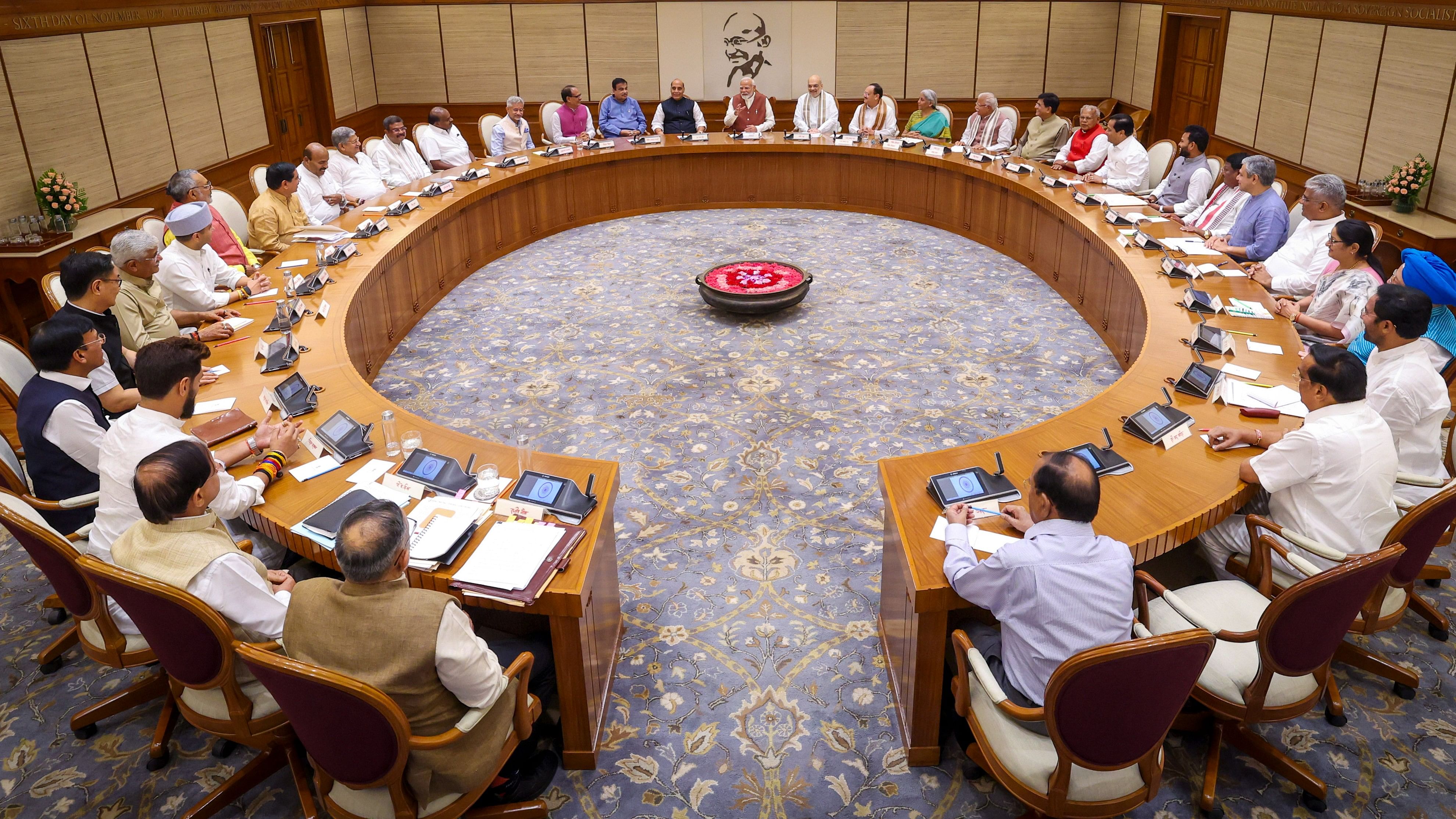
Prime Minister Narendra Modi chairs the first meeting of his new Cabinet, attended by the newly-inducted ministers, at the prime minister's 7, Lok Kalyan Marg residence, in New Delhi, Monday, June 10, 2024.
Credit: PTI Photo
After the allocation of portfolios, the top end of the new Narendra Modi ministry is the same as that of the previous Modi ministry, with all senior ministers retaining their portfolios. There is only some tinkering at the lower levels to accommodate new allies. This may be another indication of continuity and stability in terms of the face of the government and the policies that it may pursue. The Prime Minister had tried to give this impression with the composition of the ministry also, which the BJP dominates with numbers. He has added to its heft with the induction of some senior party leaders like Shivraj Singh Chauhan and J P Nadda, who have been given important portfolios. In many ways, the BJP component in the ministry is strong and very visible. The Prime Minister has sent out the message that he is in command of his government, though he is dependent on allies for a majority.
With the BJP retaining not only the important portfolios of home, defence, finance, external affairs, and road transport and highways but also the ministers who handled them, it may be assumed that the policies of the ministries will continue. In the case of ministries like defence and external affairs, there is not much scope for change of policy even when parties, Prime Ministers or ministers change. But the case of ministries like home and finance is different. Some of the worst abuses of power under the Modi 2.0 government were done by the agencies which functioned under these ministries, like the CBI, the ED and the I-T Department. These were used to harass and persecute political opponents and critics and dissenters. There was absolute failure and even cynical apathy in dealing with situations like Manipur. The government’s actions and decisions, and even the pronouncements of the Prime Minister and senior ministers, had created an ecosystem of communal division and hatred. Apart from these, there were policies which impacted the lives of ordinary people and schemes like Agniveer, which has seen much opposition. All these need changes and review, not continuity. That was the message of the election, and the mandate for change should be heeded.
Not all allies are happy with what they have got. Eknath Shinde’s Shiv Sena, which has seven MPs, is not happy with a single junior ministership. Ajit Pawar’s NCP has not accepted what was offered to it. In terms of the relative strength in the House, the allies could have claimed more. The present allocation of berths in the ministry may be based on some political calculations. These might change in future, depending on elections in states or other considerations. But there is limited scope for expansion.